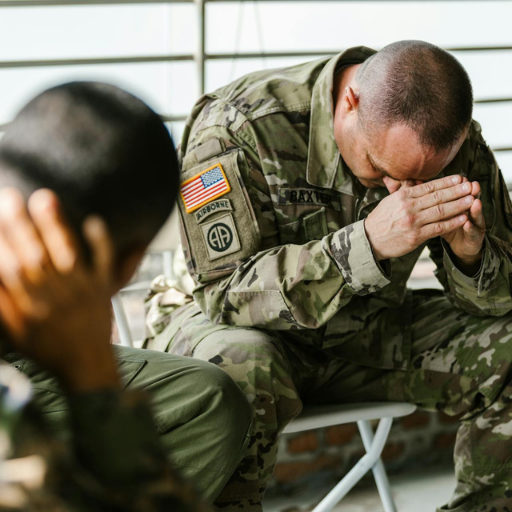Dr. Richard Schuster on The Science Behind Stabilizing Mental Health in Military Populations
What is the Science Behind Stabilizing Mental Health in Military Populations?
Stabilizing mental health in military populations involves understanding the unique stressors faced by soldiers and implementing evidence-based interventions to address them. The science behind mental health stabilization encompasses a range of biological, psychological, and social factors that interact to influence a soldier’s well-being.
Biologically, stress responses in soldiers are often heightened due to the intense and unpredictable nature of military operations. Chronic stress can lead to dysregulation of the hypothalamic-pituitary-adrenal (HPA) axis, resulting in elevated levels of cortisol, which is associated with anxiety, depression, and other mental health disorders. Research has shown that interventions aimed at regulating the HPA axis, such as cognitive-behavioral therapy (CBT) and mindfulness-based stress reduction (MBSR), can significantly reduce symptoms of PTSD and other anxiety disorders (Pietrzak et al., 2014).

Psychologically, cognitive resilience plays a crucial role in stabilizing mental health. Training programs that focus on enhancing cognitive flexibility, problem-solving skills, and emotional regulation can help soldiers better cope with the stressors they encounter. For example, resilience training programs have been shown to improve psychological resilience and reduce the incidence of mental health issues among soldiers (Cornum et al., 2011). These programs often include techniques derived from positive psychology and CBT, emphasizing the development of a growth mindset and adaptive coping strategies.
Socially, strong support networks are vital for mental health stabilization. The presence of supportive relationships with peers, family, and mental health professionals can provide soldiers with the emotional and practical support needed to navigate challenging situations. Social support has been consistently linked to better mental health outcomes and can buffer the effects of traumatic experiences (King et al., 2006). Peer support programs and mentorship within military units can foster a sense of camaraderie and belonging, further enhancing psychological well-being.
Moreover, leadership plays a critical role in mental health stabilization. Leaders who are trained to recognize signs of mental distress and who actively promote mental health resources create an environment where seeking help is normalized and encouraged. Effective leadership can reduce the stigma associated with mental health issues and encourage early intervention, which is crucial for preventing the escalation of symptoms (Adler et al., 2011).
The science behind stabilizing mental health in military populations is multifaceted, involving biological, psychological, and social interventions. By implementing evidence-based strategies such as regulating the HPA axis, enhancing cognitive resilience, fostering strong social support networks, and promoting effective leadership, the military can create a supportive environment that prioritizes the mental health of its soldiers. This holistic approach is essential for maintaining a resilient and ready force capable of meeting the demands of military service.
References:
• Adler, A. B., Bliese, P. D., McGurk, D., Hoge, C. W., & Castro, C. A. (2011). Battlemind debriefing and battlemind training as early interventions with soldiers returning from Iraq: Randomization by platoon. Journal of Consulting and Clinical Psychology, 77(5), 928-940. doi:10.1037/a0016877
• Cornum, R., Matthews, M. D., & Seligman, M. E. P. (2011). Comprehensive Soldier Fitness: Building resilience in a challenging institutional context. American Psychologist, 66(1), 4-9. doi:10.1037/a0021420
• King, D. W., King, L. A., Fairbank, J. A., Keane, T. M., & Adams, G. A. (2006). Resilience-recovery factors in post-traumatic stress disorder among female and male veterans: Hardiness, postwar social support, and additional stressful life events. Journal of Personality and Social Psychology, 74(2), 420-434. doi:10.1037/0022-3514.74.2.420
• Pietrzak, R. H., Johnson, D. C., Goldstein, M. B., Malley, J. C., & Southwick, S. M. (2014). Psychological resilience and postdeployment social support protect against traumatic stress and depressive symptoms in soldiers returning from Operations Enduring Freedom and Iraqi Freedom. Depression and Anxiety, 27(2), 189-199. doi:10.1002/da.20558